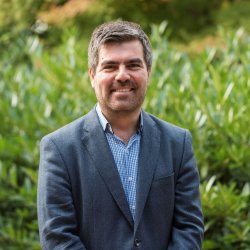Advanced fatigue analysis of metallic railway bridges
The aim of this PhD project is to develop advanced fatigue analysis methods and tools for metallic railway bridges through experimental and analytical studies.
Start date
1 October 2022Duration
3 yearsApplication deadline
Funding source
Match-funded studentshipFunding information
The 3-year studentship is partially funded by Network Rail, covering academic fees for UK/EU students and providing a stipend of £16,500 per annum to cover your living expenses. Additional funding is available to present your work in a conference. Opportunities for tutorial support in the department are available and will enhance your teaching experience as well as provide further income (approximately £1,200-£1,500 per annum).
About
In the UK and several other countries, large parts of the railway infrastructure were built in the late 19th/early 20th century. Metallic railway bridges are key elements in these networks and need to stay safe and functional for as long as possible. This will enable their owners to replace them at a steady pace whilst the network continues to function without major disruptions.
This project focuses on predicting and preventing fatigue failure, which is one of the most critical performance aspects of such bridges. The project will review existing fatigue assessment methods, in railway and other engineering sectors, to identify limitations and inherent uncertainties arising due to the non-standardised designs that are prevalent. Building on this foundation, the work will focus on a promising new method called the TCD (theory of critical distances). This method will be developed and verified for a range of bridge geometries and fatigue critical details using finite element models and engineering analysis. Parallel to the desk study, the project comprises an experimental programme, consisting of small-scale fatigue testing of typical material extracted from a real bridge. Test results will be used to benchmark and verify the analytical/numerical methods mentioned above and assess their predictive capability and accuracy.
The outcomes of this research will be integrated directly within industry standards. There will be close interaction with Network Rail/Mott MacDonald engineers to understand how the work fits within current asset management practice and to provide insights into the professional roles that can be pursued after completion of the PhD.
The project will be conducted in one of the top research environments in the UK, evidenced by the last REF exercise results in which 94% of our research was deemed as taking place in an environment conducive to producing world-leading or internationally excellent research in the future demonstrating our strong commitment to research culture, infrastructure and support provision to our researchers.
This project is open to UK students starting in October 2022.
Supervision
The PhD project will be supervised by Dr Boulent Imam, who has extensive experience on fatigue analysis of railway bridges and Professor Marios Chryssanthopoulos, who will provide expertise on uncertainty modelling and experimental planning and implementation.
Eligibility criteria
MEng/BEng/MSc in Civil/Structural/Mechanical/Aeronautical/Automotive Engineering with a UK equivalent 2:1 classification or above.
Skills in numerical (FE) modelling of structures and/or MATLAB are desirable, as is an understanding of fatigue/fracture in metallic structures. Relevant work experience can also be considered.
English language requirements
IELTS Academic: 6.5 or above with minimum 6.0 in each individual category, or equivalent.
How to apply
Applications should be submitted via the Civil and Environmental Engineering PhD programme page. Applicants are required to send a cover letter explaining their interest in the project, a CV with relevant qualifications and prior expertise in areas relevant to the project, transcripts and the names and contact details of two referees, one of them being from an individual with good knowledge of the applicant’s academic record, especially in projects/dissertations.
Civil and Environmental Engineering PhD
Studentship FAQs
Read our studentship FAQs to find out more about applying and funding.
Application deadline
Contact details
Research
Research group:

Studentships at Surrey
We have a wide range of studentship opportunities available.

